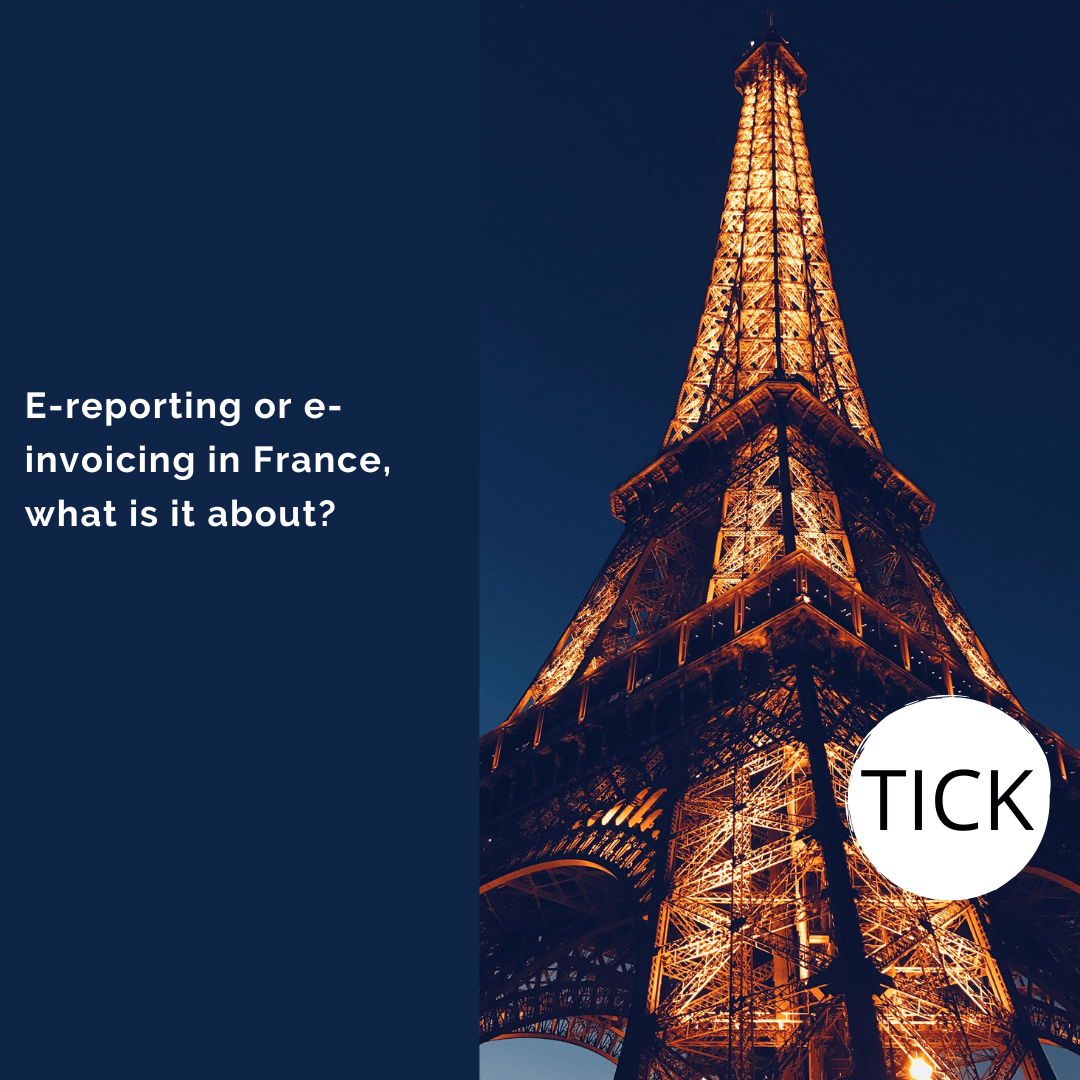Did you know that e-invoicing and e-reporting will become mandatory from July 2024? This new mandate provides insight into how B2B and B2C business are conducted. Discover the difference between e-invoicing and e-reporting and how it affects your business.
From 1 July 2024, France will introduce mandatory e-invoicing. Under the new mandate, it will be a gradual process until 2026. However, in order to stay ahead of the compliance curve, it is essential to understand the basics before it is too late.
Overview of e-invoicing and e-reporting
Mandatory Electronic Invoices (e-invoices) are mandatory for public administration transactions from January 2020. However, mandatory e-invoicing for B2B transactions has not yet been implemented and has been postponed from 2023 to July 2024.
This means that companies based in France will be required to issue e-invoices to other French business customers. To fully understand and comply with the upcoming mandate, we need to look at the fundamental differences between e-invoicing and e-reporting.
E-invoicing: The requirements for e-invoicing are not limited to the transition to digital technology. While everything is done electronically, there is an additional mandatory format. This format requires a minimum database and structure that companies need to consider. In addition, this data is made available to the French authorities in real time to ensure full transparency.
E-reporting: E-reporting is the obligation to report to the French authorities any sale that is not covered by the e-invoicing rules. While e-invoicing is mandatory for sales between French companies, e-reporting covers all imports, exports, sales to private persons (B2C) or intra-community (B2B) deliveries.
Mandatory e-invoice schedule
The three-year plan will be implemented depending on the size of the company as follows:
- Large companies or large taxpayers that do not qualify for any other size (1 July 2024)
- Small and medium-sized enterprises (SMEs) with fewer than 5,000 employees and an annual turnover not exceeding EUR 1.5 million (1 January 2025)
- Small and medium-sized enterprises (SMEs) with fewer than 250 employees and an annual turnover not exceeding 50,000 EUR (1 January 2026)
As part of the process, the order also includes specific transactions that will require e-invoicing. All taxable B2B transactions made in France will need to be reported via the e-invoice format. In addition, e-invoicing is also mandatory for domestic transactions between companies established in France and VAT registered taxpayers.
E-invoice format and compliance
For electronic invoices to be fully compliant, they must have a specific format. This will affect the recovery of VAT from the domestic front. The technical nature of invoices is essential. It makes no sense if you have an “electronic invoice” but the invoice does not meet the required standard.
Who is affected by e-reporting in France?
Foreign companies are subject to electronic reporting in the event of a taxable transaction. This is because French VAT has been charged and can be refunded. This covers some common circumstances for foreign companies registered as VAT payers, such as:
- Domestic B2B sales between companies based in France.
- Domestic sales to foreign companies. If the supplier is not based in France, he is required to submit e-reports.
- Domestic sales to customers (B2C). A supplier not based in France also has an e-reporting obligation.
Benefits of e-invoicing
While e-invoicing is gradually being rolled out in many countries, it is important that businesses also see the many benefits that this change brings.
- E-invoicing minimizes the cost of business expenses for printing physical invoices.
- It reduces fraud and ensures transparency of transactions.
- Creates an accurate trace of each transaction that is easier for archiving purposes and identifying exact VAT refund amounts.
- He helps companies in their business by presenting the input and requirements of business trends.
Compliance with IT and VAT e-invoicing
Feel free to contact us if you need to obtain VAT registration in France.


